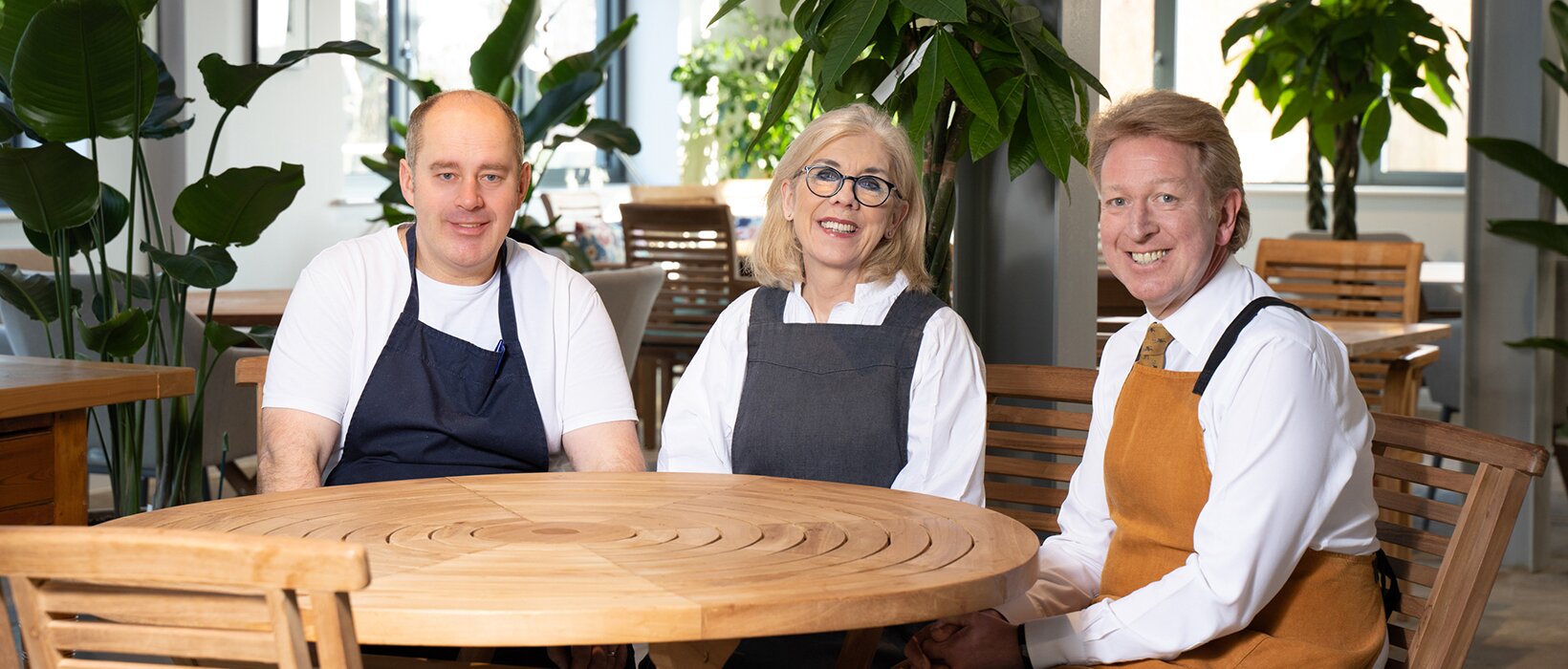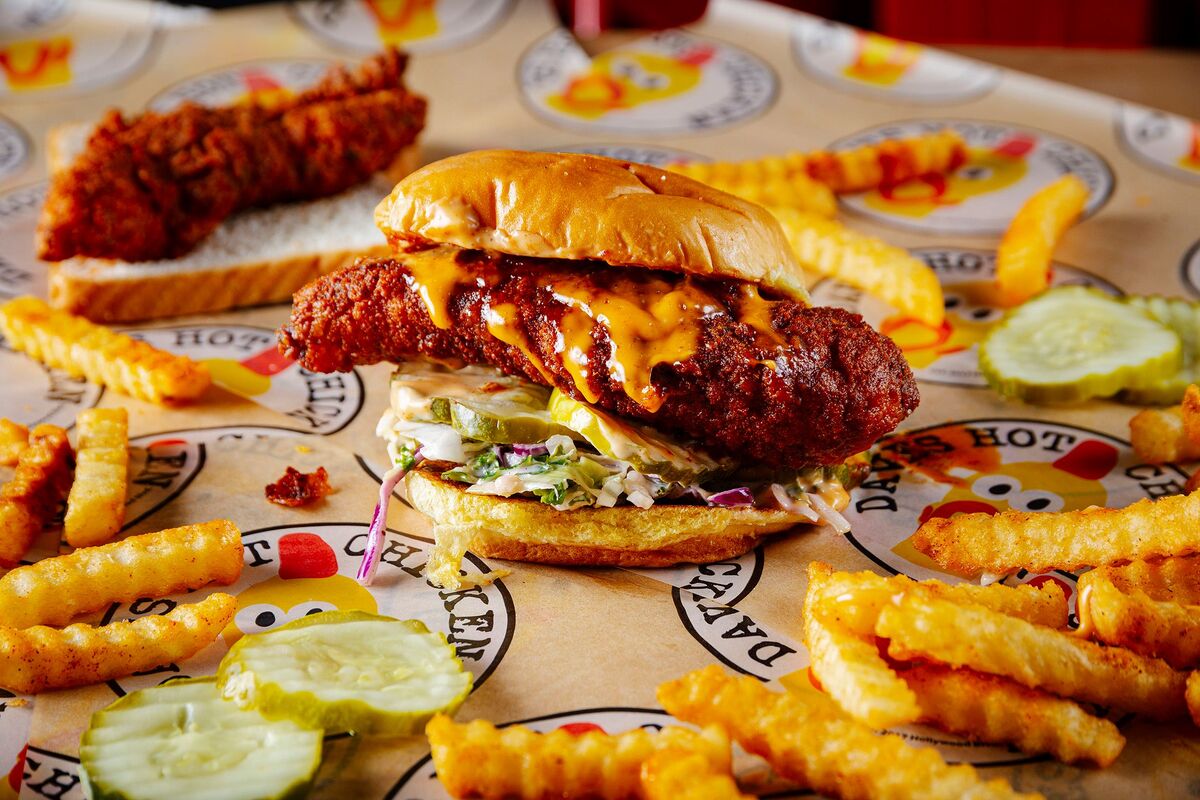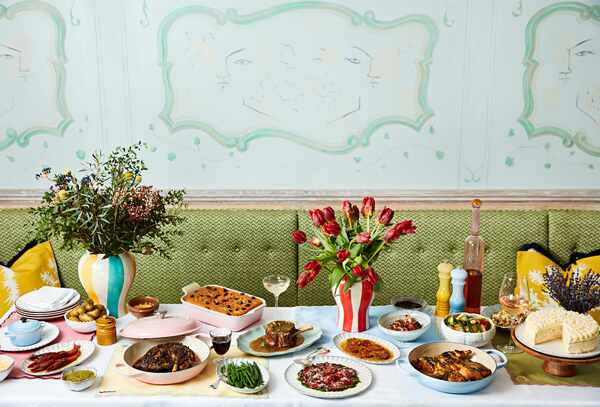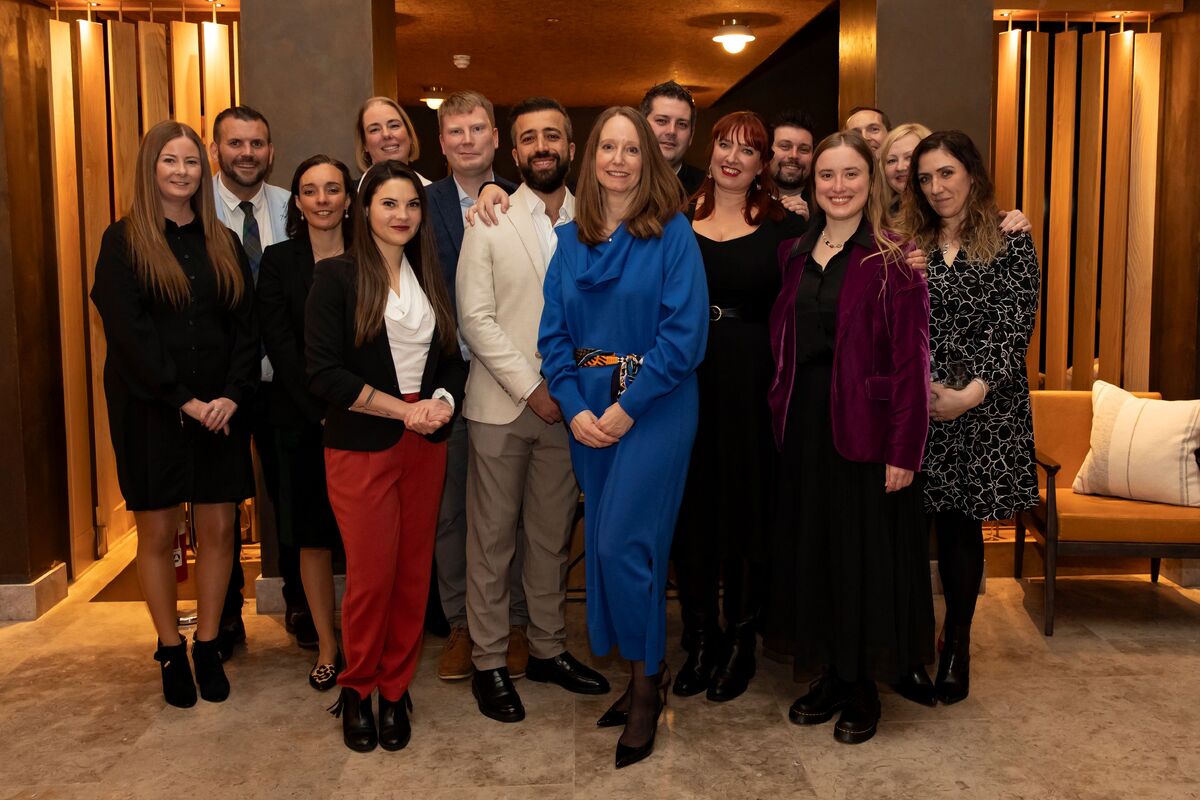The Caterer Interview: Frances Atkins, Paradise
Having departed the Yorke Arms in 2020, Frances Atkins has opened Paradise at Daleside. The chef speaks about growing her own produce and becoming an unexpected success
Paradise at Daleside Nurseries in Harrogate has been open for several months – how are you getting on?
We love it, it turned out to be so much better than we thought and quite a different animal to what we envisaged. We naively thought we would have a plant-based café and do food all day and it would be super laid-back and that wasn’t to be. We’ve been very, very busy and I’ve had to reorganise the whole thing. Our services are pretty fast and I thought the other day, “thank God I do yoga”, because I’ve got to keep fit at my age. But we’re very happy with our location as it suits our style and work ethic, so even though we’ve had to change our direction a bit, we’re enjoying it.
You sold the Yorke Arms in 2017 and left the business when Covid hit and the new owners transitioned it to an events venue. Had you always planned to embark on a new project?
I never wanted to stop working and I was extremely thrilled when [front of house manager] John Tullett and [chef] Roger Olive said they’d like to continue working with me. During the difficult times of Covid we thought it would be fun to get a food wagon, so we had one made in Ireland, which caused quite a lot of drama and difficulty. We had to pay for it up front so it was a bit of a risk, but we got there in the end. We had a very good arrangement with Daleside Nurseries, who wanted to have a café or restaurant, so we put our wagon there while the restaurant was being built.
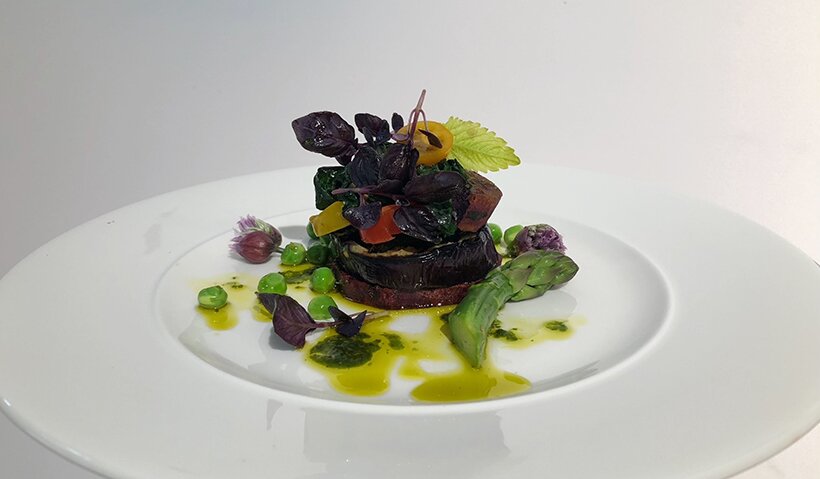
What excited the three of you about a new venture?
I think we all just wanted to produce good food. John has front of house skills, Roger is a very committed and talented chef, and we wanted to produce good food that would allow us to pass on our pleasure to the customer.
It wasn’t easy though, as we had start-up costs, so us all chipping in and getting a food wagon was a good way to start and we built it up from there.
Did you enjoy cooking out of a wagon?
It was a nightmare, if I’m honest. It started off being good fun and we thought we were super-organised, but when it came down to it, we didn’t have enough water and we didn’t have a huge amount of refrigeration, and that was a learning curve – we had to cut our costs according to our size. We did manage to make everything in the wagon, but we were either freezing cold or boiling over. At one point I thought I was being canned like a sardine, and at other times it was like we were working in a walk-in. It was difficult but fun, but it was also good when it finished. It was a point of survival – we needed to work.
Was it successful from a business perspective?
Well, yes. We formed a company [Paradise Food with FRJ] and it was fairly successful to start off with, but then it began to tail off a bit. It kept us going, which I think is the honest thing to say. I strongly believe these things are what you make them. It suited our purpose at the time and it was better than doing nothing.
How was moving into the purpose-built restaurant and café after that?
It was great, it’s been super. We tried to design the interior knowing that we’d have minimum staff as it’s so difficult at the moment to find anybody. We started off with the three of us, which was extremely hard work, but things have become easier and we have a little more help now.
So you’ve managed to recruit a team?
Yes, we have Jowayne Marshall, one of our chefs at the Yorke Arms, working with us now, and we have a young person front of house with John. He’s been great and he’s loving being in hospitality. We’ve been trying to encourage more young people to come into the industry. We just want them to enjoy it first and not be put off by anything, and the finesse will come later.
You envisioned Paradise being a plant-based café but how has it evolved?
I enjoy the word café because we do everything: we do breakfast, we do morning coffee, we do cakes, we do lunch, and we do afternoon tea. The food is very plant-based and we make absolutely everything ourselves; all our own bread and cakes. We have an open-plan kitchen which means while we are cooking we can see people arrive and one of us can go and greet and serve a guest and then carry on cooking. We can do a bit of everything.
That’s a lot with such a small team
It is, but it works and it makes for a nice atmosphere. Our prices are such that our customers enjoy the food, but if there’s a little glitch, like they’ve had to wait or something, that’s just how it is – we do our best.
Do you find there’s more freedom having stepped away from the fine dining style of service?
Yes, and we’re loving it. We love the fact that we have spontaneity with our food. Every morning we pick all our herbs and our vegetables, so what we’re putting on the plate might not be as manicured as it used to be, but it’s really lovely, fresh food that we can enthuse about.
The neurosis of a blogger coming to write articles about you has gone. Or of chefs coming and asking why we’re doing something and then using our ideas on their menus. That’s the beauty of what we’re doing now: we’re producing very simple, very fresh, very vibrant food. We’re enjoying it and hopefully our guests are too.
Is a lot of the produce you use grown in the nursery?
Yes, and I’ve cultivated a big garden at my home, too. I go out in the morning to pick all the herbs and the veg and it sounds a bit romantic, but it works. We’re picking what we’ve got and what’s grown well. Most of our food has a fresh leaf with it of some sort as a garnish, so we can marry up our herbs to produce the different flavours we want. For example, we’ve got a herby tortellini with pulled chicken and at the moment it’s served with some of the asparagus that’s been popping up at home, as well as our pea shoots and wild garlic. We’re also seeing gooseberries, elderflower and lovage and, as a chef, while you’re gathering, you’re thinking, this would be really good with that...
So you’re devising menus as you go?
We have our basic lunch and breakfast menus, so for breakfast we do kedgeree and hash browns that are filled with different herbs and served with mushrooms, and we often have a special, too. For morning coffee we have a Ukrainian girl working with us and she makes Ukrainain honey cake and it’s lovely, so we have that on as well as strawberry tarts, custard tarts and chocolate cake.

Then for lunch our cheese tart with Yorkshire ham and apple relish is very popular and we have spiced lamb and we offer a stuffed aubergine with fresh tomato for vegans. We do a mixture of vegan dishes, vegetarian dishes and meat dishes, but they all have lots of vegetables with them.
We do evening services on Fridays once a month and that’s when we revert back to the sort of food we might have done at the Yorke Arms. John is able to produce a very nice, relaxed atmosphere with proper service and we enjoy that and the guests seem to be happy with that too, but we’re a new business, we’re evolving and it’s already turned out to be not what we originally envisioned. But with any new business you have to go with the flow and see what happens.
You, Roger and John have worked together for more than 20 years. What’s ensured the longevity of your partnership?
We’ve had our fall-outs, believe me, but it’s a really good arrangement. We soon worked out that we need each other’s skills to make the business operate. It’s like a band – we need each other to produce what we produce, and it works well. We’ve all come to a sensible agreement about business decisions as we’re all partners. That’s why it’s called Paradise with FRJ.
And what’s next?
We have a huge area outside overlooking the lake, so we’ll be developing that. When the sun shines people sit out there – one man got quite excited the other day and said “oh, it’s like Amalfi”. So we could do a lot with it, but for now we need to concentrate on keeping our quality and standards up to scratch.
How are you coping with the cost pressures afflicting the industry?
Well, we have to keep an eye on costs all the time. Growing a lot of our own produce helps. Chefs, myself included, tend to take risks on costs when they see something that will be really good, but we can’t do that any more – we’re reliant on this for a living and we’ve got to be careful.
Is this the toughest trading environment you’ve seen?
I don’t know, at the Yorke Arms staffing was getting pretty tough and we relied hugely on the young overseas visitors, and when they went home it got pretty tricky. I think the general public have to understand we’re doing our best, but our industry just does not have the staff to provide the service they are used to. I think it’s up to us to work at this because you’ve got to be able to provide what you realistically can.
Is hospitality a better industry to work in than it was 20 or 30 years ago?
No, I don’t think so. I think time changes, fashion changes, society changes and you work with that. I’ve always enjoyed my work, I’ve enjoyed the industry and the camaraderie and I think things are different – not any better or worse. You have to keep looking forward.
I’m old enough to have seen quite a few changes in fashion with food and the newest thing is always good because it’s new, but it doesn’t make it any better. I think the most important thing is that people do a good job. So whatever you’re doing, if the food remains fresh, flavoursome and beautiful, and the service is the best you can give, and as long as you’re courteous, I don’t think it will be too bad.
About Frances Atkins
Atkins was brought up in Ilkley, west Yorkshire, and attended Bradford School of Technology. Her hospitality career began at the lauded Box Tree in Ilkley before she headed to Scandinavia. A decade of her early career was spent working as a private chef before she opened her first restaurant, Atkins, in Great Missenden, Buckinghamshire.
From there she moved to Speen, where she headed up the Old Plow. She and her husband went on to buy Dalhousie Castle in Midlothian, which they turned into a country house hotel.
Frances then headed on to Shaw’s Restaurant in London, before taking on the Yorke Arms in Ramsgill, Yorkshire, in 1997. The Yorke Arms held a Michelin star continually for 16 years.
Atkins and her husband sold the property in 2017, but she stayed with the new owner for two years, until Covid saw the business pivot to events.Atkins is a fellow of the Master Chefs of Great Britain and the Royal Academy of Culinary Arts.



